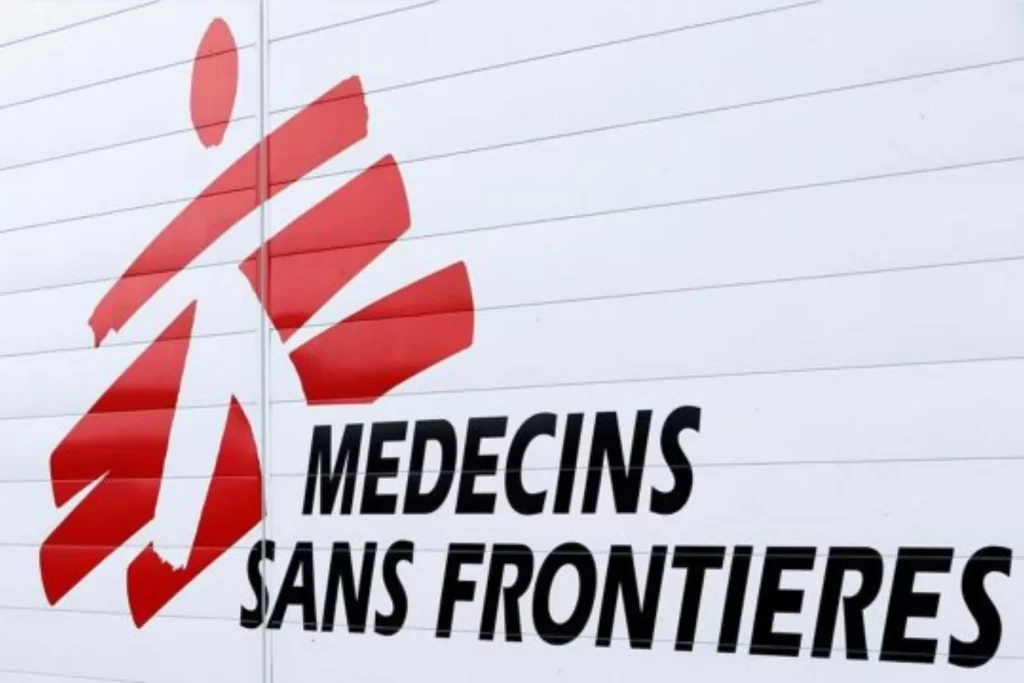A deepening hunger and malnutrition crisis is sweeping across northern Nigeria, with over 650 children confirmed dead in Katsina State and an alarming 400 severely malnourished children being admitted daily in Kebbi State, according to Médecins Sans Frontières (Doctors Without Borders, MSF).
The two states have become epicentres of an escalating nutrition emergency that MSF describes as “unprecedented and catastrophic.”
The dual tragedies are unfolding amid severe poverty, food insecurity, desertification, rampant inflation, donor funding cuts, and limited healthcare access.
In Katsina State, MSF revealed that between January and June 2025, it treated nearly 70,000 malnourished children, with 9,878 requiring hospitalisation.
Despite these efforts, 652 children died from severe acute malnutrition (SAM) due to delayed or denied access to lifesaving care.
“The year 2024 marked a turning point in northern Nigeria’s nutritional crisis, but what we are witnessing in 2025 far exceeds all predictions,” said Ahmed Aldikhari, MSF’s Country Representative in Nigeria.
“Many families can no longer afford food, even though markets remain stocked.”
MSF data shows a 200 per cent surge in nutritional oedema cases — the most life-threatening form of malnutrition — in Katsina compared to the same period in 2024.
Disturbingly, over 50 per cent of 750 mothers screened while seeking help for their children were also found to be malnourished, with 13 per cent in critical condition.
Meanwhile, in Kebbi State, the situation is no less dire. The Maiyama Inpatient Therapeutic Feeding Centre (ITFC), the only facility of its kind in the state, is stretched beyond capacity, admitting over 400 severely malnourished children every day.
Dr. Hamza Bello, a senior MSF physician overseeing the centre, warned: “We are overwhelmed. August is usually the peak of the hunger season, and the situation may get worse. Parents now walk over 100 kilometres to access free care.”
In 2022, the state recorded 2,652 admissions for SAM. That figure soared to 51,139 cases in 2024, along with nearly 10,000 cases of moderate acute malnutrition (MAM).
By mid-2025, 24,784 children had already been admitted for inpatient care, and 107,461 treated through outpatient programmes — marking a 13 per cent rise over the previous year.
The lack of funding has worsened the crisis. Major donors such as the United States, United Kingdom, and European Union have slashed humanitarian support.
The World Food Programme (WFP) also suspended food and nutrition aid to 1.3 million Nigerians in the Northeast due to funding shortfalls.
Health experts warn that the crisis is being compounded by disease outbreaks, low vaccination rates, insecurity, and an underfunded healthcare system.
In a recent MSF survey in Kaita, Katsina, over 90 per cent of households admitted to reducing their daily meals — even before the lean season began.
To address the crisis, MSF has expanded its presence by opening new feeding centres in Mashi and Turai in Katsina, raising bed capacity across the state to 900. However, officials say this is far from enough.
“There is an urgent need for coordinated, multi-actor support,” Dr. Bello pleaded. “The lives of thousands of children hang in the balance.”
MSF’s Nutrition Referent, Emmanuel Berbain, called for mass food distribution, supplements, or direct cash transfers as the most immediate measures to avert more deaths.
Vice President Kashim Shettima has declared the situation a national emergency, noting that nearly 40 per cent of Nigerian children under five suffer from malnutrition — a condition that gravely stunts both physical and cognitive development.
Do you want to share a story with us? Do you want to advertise with us? Do you need publicity for a product, service, or event? Contact us on WhatsApp +2348183319097 Email: platformtimes@gmail.com
We are committed to impactful investigative journalism for human interest and social justice. Your donation will help us tell more stories. Kindly donate any amount HERE




